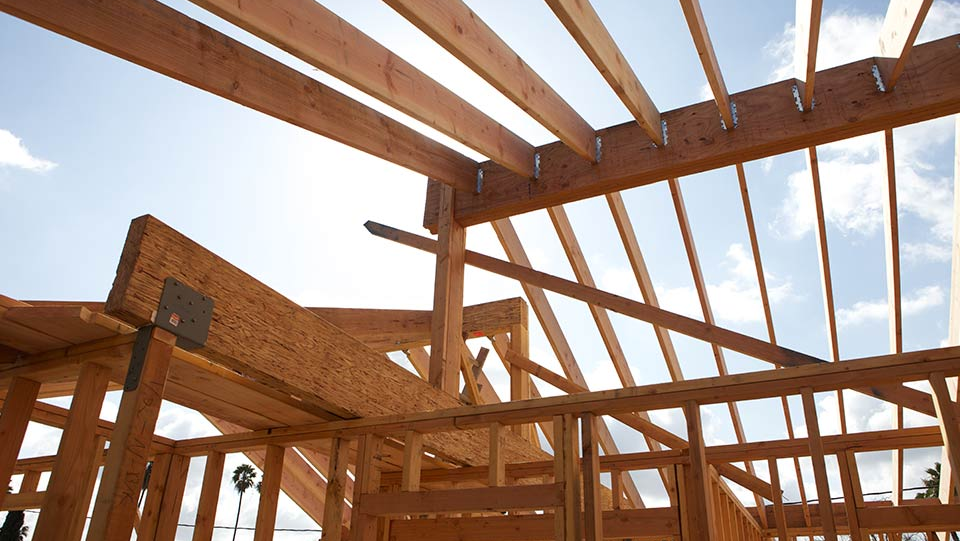Get your homeowners insurance questions answered
Below are frequently asked questions and answers regarding homeowners insurance.
Policy basics
Homeowners insurance can protect you from the unexpected. If your home is damaged, your belongings are stolen or someone gets injured on your property, it can help cover repairs or replacement, temporary housing, medical bills, legal fees and more.
A homeowners policy is recommended for anyone who owns a home or condo and may even be required by your mortgage lender. In certain areas, you may need separate policies or coverage to help protect your home and personal belongings against damage due to floods, earthquakes, windstorms or hail.
Most policies have three key elements: the premium, which is how much you pay for coverage; deductibles, which are how much you’re responsible for out of pocket in the event of a covered claim; and limits, which are the most your insurer will pay for a covered claim.
Home insurance is coverage you hope to never have to use, but if the unexpected happens, it can help you restore your life back to normal.
An insurance representative can help you determine the homeowners coverage that best fits your needs and budget, but a typical policy can cover:
-
The structure of your home.
-
Other structures on your property (e.g., garage, shed).
-
Your personal belongings.
-
Additional living expenses if you cannot live in your home due to a covered loss or repairs.
-
Your personal liability or legal fees.
-
Valuable items (extra coverage can usually be added).
When figuring out how to choose home insurance, consider these key questions:
-
What is the estimated cost to replace, rebuild or repair your home – the “replacement cost”?
-
What other structures are on your property (e.g., garage, shed, fences)?
-
How much of a deductible can you afford to pay out of pocket if you have a loss?
-
What are your valuables and what are they worth?
-
Do you have frequent visitors to your home?
-
Do you work out of your home?
-
Do you rent any part of your home or property?
-
Do you qualify for any discounts?
-
What are the basic coverages required by your mortgage lender?
Our licensed insurance representatives are happy to walk you through all of this step-by-step and can help you review your needs on an annual basis.
Choosing a homeowners insurance policy starts with choosing the right insurance company.
Travelers has been one of the nation’s leading and largest property casualty companies for over 165 years. We offer a variety of policy options and packages to help you get the coverage that meets your unique needs. We can provide you with information to help protect the place you call home.
Travelers gives you peace of mind with a claims process that is simple and stress-free.
Not usually. Homeowners insurance is not generally designed to cover business use of your home. It may include limited protections, such as replacement or repair of computers and other electronic devices, but for more comprehensive coverage, you may require a business owner’s policy.
It depends. Most homeowners policies come up for renewal each year, but customers must remain eligible and pay their premiums to renew.
It’s a good idea to review your coverage with an insurance representative every year.
Umbrella insurance is additional personal liability coverage that can offer an additional layer of protection beyond what your homeowners insurance can provide.
If you or a family member is found personally responsible for serious property damage or personal injury to others, the cost of damages can quickly add up beyond the liability limits of your home policy. Umbrella insurance can provide extra protection, especially if you have many assets to protect.
Premium and discounts
You may qualify for several discounts, which vary by state and eligibility. Remember to ask your insurance representative about Travelers discounts for multiple policies, security systems or fire protective devices, certain smart home technologies, “green” home certification, loss-free history and more.
The cost of your insurance, or premium, partly depends on the coverages, deductibles and policy limits you choose. Here are a few tips that may help lower your premium:
-
Talk to your insurance representative about your insurance needs and eligibility for discounts.
-
Invest in smoke detectors, interior sprinkler systems, home security and smart home technologies.
-
Bundle or purchase multiple policies with Travelers, such as car, boat and umbrella insurance.
Savings! Bundling your car and home with Travelers can save you money on your home insurance. You can see additional savings when you purchase other policies like boat, umbrella insurance or a personal articles floater. Ask about our multi-policy discount.
Yes, as can some smart home technologies. Ask about our protective device discount.
It’s good for the environment, for one. Insuring a Leadership Energy and Environmental Design (LEED) certified home might also mean you qualify for our green discount.
The “cost to rebuild,” or “replacement cost,” is the estimated amount of money it would take to rebuild or repair your home at the time of a covered loss.
Labor, material and equipment costs specific to your area can all impact the estimated replacement cost. Your insurance representative can help you calculate what this would be for your current or prospective home.
Your home insurance deductible is the amount you’ll be responsible for paying toward the costs due to a loss before your insurance coverage pays. It can vary and may be either a dollar amount or a percentage. Some policies even have multiple deductibles. So if you have a deductible of $500, then you will pay the first $500 of each covered claim.
Your premium is how much you pay for coverage. Typically, if you have a higher deductible, you may pay a lower premium, and vice versa. A lower premium may be nice for your wallet, but remember to choose a deductible you can actually afford in the event of a loss. Your insurance representative can help you with this.
Coverage and limits
Dwelling coverage (Coverage A) pays to repair or rebuild your home if it is damaged by a covered loss. The amount of dwelling coverage you need is determined not by the market value of your home, but by the estimated cost to rebuild it. If you have a mortgage, your lender may even require certain dwelling coverage options, limits and deductibles.
Other structures coverage (Coverage B) covers the structures on your property that are not attached to your home, such as garages, sheds and fences.
An insurance representative can help you determine what it would cost to repair or rebuild these structures when choosing your deductibles and policy limits.
Personal property coverage (Coverage C) is required on all homeowners policies. It pays to repair or replace personal items in your home like furniture, clothing or electronics that may be damaged by a covered loss.
Other assets like cash, collectibles, jewelry, furs and silverware may have limited coverage, but additional coverage may be available with a valuable items endorsement or a separate policy. Think about what it would cost to repair or replace your personal belongings and valuable items, and if additional coverage would make sense for you.
Loss of use coverage (Coverage D) helps you pay for temporary housing and living expenses if you and your family have to move out of your home during covered repairs.
Liability insurance can help protect your assets and cover your defense costs if you or a household family member is found legally responsible for causing injury to other people or their property. It can provide coverage for bodily injury, property damage, medical payments and legal expenses.
Do you have a high level of risk or many assets to protect? You can always discuss your liability coverage needs, options, deductible and policy limits with your insurance representative.
Dwelling coverage helps protect the home itself, while personal property coverage can protect what’s in it. Both coverages are required on most homeowners policies.
A deductible is the amount of a covered claim that is your responsibility. And a policy limit (or “limit of liability”) is the maximum amount your insurance company will pay for a covered claim.
Some homeowners opt for higher deductibles in favor of a lower premium. But if the unexpected happens, you need to make sure the amount you choose as a deductible is one you can afford to pay out of pocket.
An insurance representative can help you balance your individual needs.
Possibly. Updates to your home like adding a room, renovating a kitchen or installing a pool may affect the amount of coverage you need.
Check in with an insurance representative when you’re doing a big project, making a big purchase or on an annual basis to help ensure your policy remains adequate and up to date.
Most homeowners policies include liability insurance that can provide coverage for bodily injury and property damage of others for which you or your family member is legally responsible, including legal defense costs. It also includes medical payments to guests who are accidentally injured on your property. It does not cover personal injury claims for you or any family members that live with you.
Damage or theft of personal belongings can be covered under personal property coverage of a homeowners policy. This coverage helps protect items like electronics, sporting equipment and furniture up to your policy limits. It also covers your personal items when they are outside of your home, like if your computer got stolen from your car or hotel room.
Other
Wildfires often begin unnoticed and can spread quickly.
More about homeowners insurance
Home insurance overview
Gain an understanding of homeowners insurance and learn about protecting your home.
What's covered
Choose the coverages to fit your homeowner needs. See what’s included in a basic homeowners policy and what, if anything, you may consider adding.
Ways to save
Find savings options you may qualify for with Travelers home insurance.
Prepare & Prevent
Insights to help you manage risks at home and on the road
Buying & Selling
8 Tips for First-Time Homebuyers
Before you buy your first home, make sure you've done your homework. Get first-time homebuyer tips with this checklist from Travelers.

Emergency Preparedness
5 Steps to Create a Home Inventory Checklist
Create a home inventory checklist to keep track of your important possessions in order to help verify loss for insurance and taxes.

Tips and Resources for Insuring Your Home
Is Your Home Insured to Its Replacement Cost?
If your home isn’t insured to its estimated replacement cost, your homeowners policy may not cover the full cost to rebuild.

